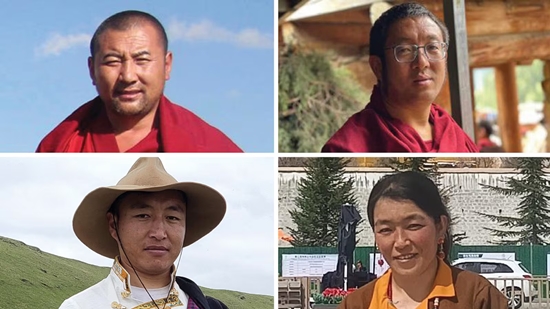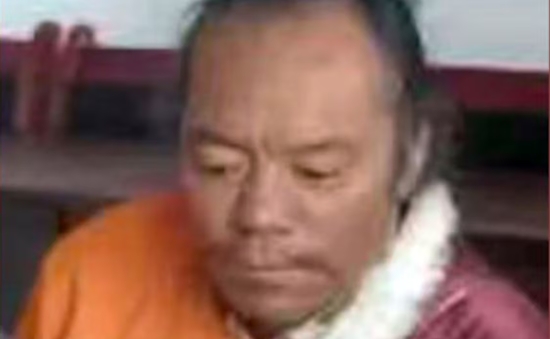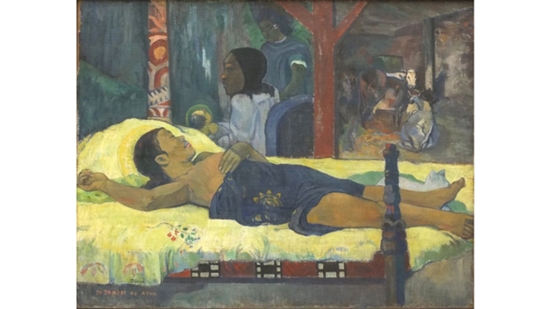
The Tibetans did not commit any crime but that of disobeying immoral edicts of the Chinese government (“Authorities arrest four Tibetans in Ngaba county for contacting outsiders,” Radio Free Asia, October 29, 2024).
”The Chinese government restricts communication between Tibetans and their family members and friends abroad, saying it undermines national unity.” If you live in Tibet, you most likely are under surveillance. So if you interact with the outside world, there’s a good chance you will be caught.
Lately, the authorities have reason to be even more nervous about the residents of Ngaba county in Tibet.
Chinese authorities have arrested four Tibetans from Ngaba county in Sichuan province, accusing one monk from Kirti Monastery of making dedication prayer offerings outside Tibet and two laypersons of maintaining contact with Tibetans outside the region, two sources told Radio Free Asia. [The four, shown above, are, from top left, Lobsang Samten, Lobsang Trinley, Tsering Tashi, and Wangkyi.]
The arrests in early September come close on the heels of monastic school closures at Kirti Monastery in Ngaba county and Lhamo Kirti Monastery in Dzoge county, as well as the forced transfer of over 1,600 students, aged 6-17, from the Buddhist schools into state-administered “colonial style” boarding schools….
In the wake of the school closures, authorities have intensified surveillance and imposed tight restrictions on Tibetans in Ngaba county, including a crackdown on communication with the outside world.
“After the school closures in July, a high-ranking official from China’s United Front Work Department was stationed in Ngaba county for several months, implementing even stricter control measures over both the monastery and the local community,” the first source told RFA on the condition of anonymity for safety reasons.
Shipping Tibetan kids en masse to boarding schools is part of the Chinese Communist Party’s program to expunge Tibetan culture and language from the region in favor of what it regards as proper national Chinese culture.
A government’s deliberate persecution of innocent people tends to provoke a reaction from the victims that this government, especially if it is authoritarian or totalitarian, regards as dangerous—even if the reaction consists only of telling others in the world what is happening. In the minds of the tyrants, such activity, being dangerous to the state, often warrants still more of the same injustice.





